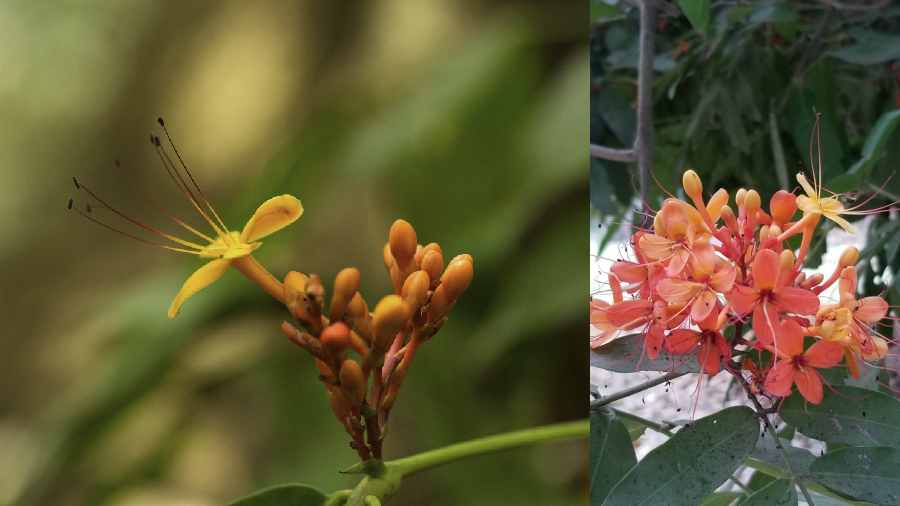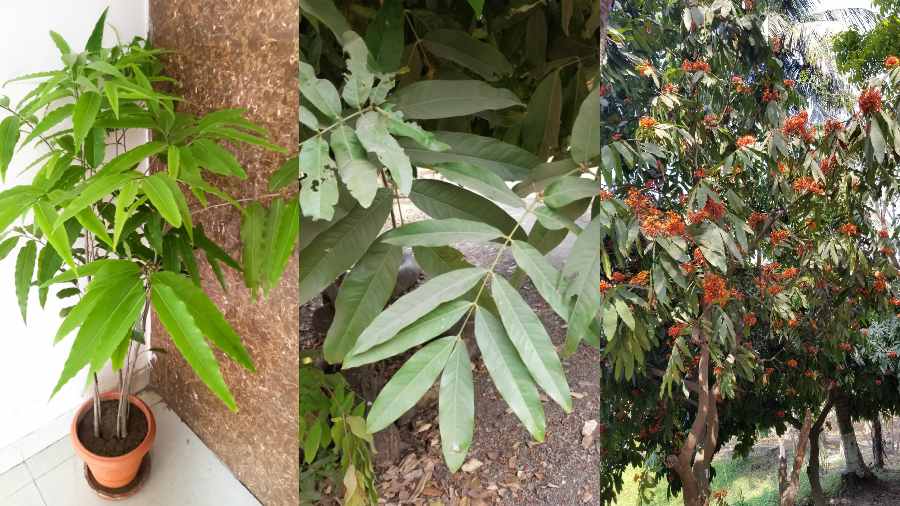Ashoka is a evergreen tree with beautiful flowers that are native to India, Myanmar, and Sri Lanka. Its primary habitat is rainforest and monsoon forest. It is one of the most exotic flowering trees of the Indian subcontinent. It is considered sacred and legendary in India. In Sanskrit, Asoka or Ashoka means ‘without sorrow’ or Sorrow-less. The scientific name of Ashok is Saraca asoca.
This tree has many folkloric, religious and literary associations in the Indian subcontinent. The ashoka tree is often mentioned in classical Indian religious and amorous poetry, having at least 16 different names in Sanskrit referring to the tree or its flowers.

It is believed that Gautama Siddhartha, the founder of Buddhism, was born under the Ashoka tree. In Hinduism, the ashoka is considered a sacred tree. the ashoka tree is worshipped in Chaitra, a month of the Hindu calendar. It is also associated with Kamadeva, the Hindu god of love, who included an ashoka blossom among the five flowers in his quiver (As per Hindu scriptures, the five flowery arrows are made of white lotus, red flower, mango blossom, jasmine and blue water lily), where ashoka represent seductive spell.
The ashoka tree is mentioned in the Ramayana in reference to the Ashoka Vatika (garden of ashoka trees) where Hanuman first meets Sita.
Its flowering season is around February to April. The ashoka flowers come in heavy, lush bunches. They are bright orange-yellow in color, turning red before wilting.
There are a few varieties of the ashoka tree. One variety is larger and highly spreading. The columnar varieties are common in cultivation.

Type of soil
For healthy growth, the Ashok plant needs medium to deep, rich in organic content soils that are slightly acidic to neutral and well drained. The Ashoka plant thrives in tropical and subtropical environments and can grow 20-30 foot tall. Ashoka tree needs fertile and well-draining soil with slightly acidic to neutral pH 5-7.5. Loamy, sandy loamy, or clay-loamy soil. It requires temperature between 16 and 32°C. Apply any organic fertilizer.
Medical benefits
The Ashoka tree has been used extensively in Indian medicine or Ayurveda. There are several health benefits of the Ashoka tree. It is used to relieve pain, lower blood sugar levels, reduce ulcers, relieve fever, and reduce inflammation.

Arijit Poddar, a GD Block resident and secretary of the Bidhannagar Horticultural Society, shares innovative tips on gardening

